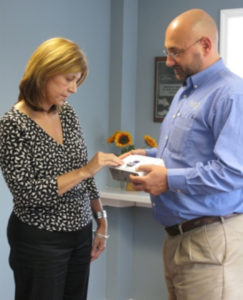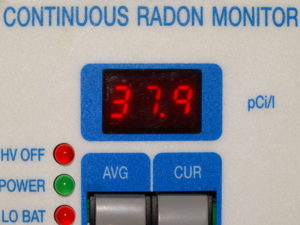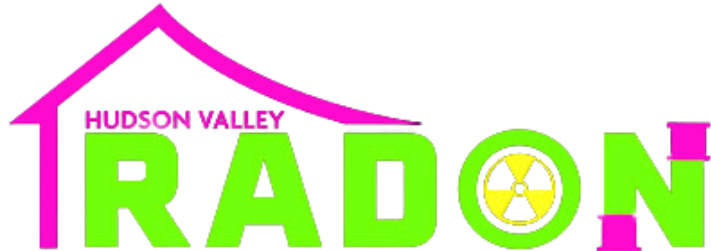
TEST IT . . .
 We perform radon testing services for a variety of clients consisting of home owners (single family/condos/apartments/townhouses), realtors, business owners, mortgage companies, property managers, banks, architects, engineers, lawyers, estate owners, multi-family dwellings, landlords, first time buyers, sellers, daycare, schools and commercial clients.
We perform radon testing services for a variety of clients consisting of home owners (single family/condos/apartments/townhouses), realtors, business owners, mortgage companies, property managers, banks, architects, engineers, lawyers, estate owners, multi-family dwellings, landlords, first time buyers, sellers, daycare, schools and commercial clients.
We at Granite Inspection Group are locally owned and operated. The Hudson Valley’s preferred radon testing, measurement and diagnostic professionals. We specialize in radon testing, diagnostic, mitigation, consultation and maintenance services. Professional trained to perform Radon in home measurements (RT), Multi-family building measurements, (MFM) Measurement of Schools and Large Buildings (MALB).
We are licensed and Approved certified Radon Laboratory of the NYS Department of Health(NYSDOH). An affiliate of the National Radon Safety Board (NRSB), and the American Association of Radon Scientists and Technologists (AARST) to perform radon measurement, testing and mitigation.
All radon testing is performed and is in compliance with NYSDOH, EPA, NRSB, AARST, HUD, VA, FHA.
 Michael Christophides, Chief Inspector and Laboratory Director of Granite Inspection Group, with a Continuous Radon Monitor, he explains the testing process and radon results to a client. Remember… CRM’s may only be used, administered, analyzed and authorized by a New York State Approved ELAP (Environmental Laboratory Approval Program) Laboratory!
Michael Christophides, Chief Inspector and Laboratory Director of Granite Inspection Group, with a Continuous Radon Monitor, he explains the testing process and radon results to a client. Remember… CRM’s may only be used, administered, analyzed and authorized by a New York State Approved ELAP (Environmental Laboratory Approval Program) Laboratory!
Our services are utilized by many professional organizations and programs like Housing and Urban Development (HUD), Veteran Administration (VA), Federal Housing Authority (FHA) and other agency, profit and nonprofit organizations. We are their preferred choice in servicing and resolving their environmental needs.
 Testing is the only way to know if you and your family and others are at risk from radon gas. The EPA and Surgeon General recommends testing all homes and buildings below the third floor for radon.
Testing is the only way to know if you and your family and others are at risk from radon gas. The EPA and Surgeon General recommends testing all homes and buildings below the third floor for radon.
The Surgeon General of the United States has issued a health advisory warning Americans about the health risk from exposure to radon in indoor air. The Surgeon General urges Americans to test their homes and buildings to find out how high the radon levels are of which they are breathing.
What are radon testing methods?
There are many methods available for testing. There are liquid scintillation chambers, alpha-track detectors, charcoal canisters and electret ion chamber detectors which are all considered Passive radon testing methods and devices and only give a final overall number. Then there are Active radon testing methods and devices which provide hourly readings for the duration of the test and a total average result for the entire testing period. These are considered Continuous Radon Monitors (CRM) and may ONLY be used, administered, analyzed and authorized by a New York State Approved ELAP (Environmental Laboratory Approval Program) Laboratory! When testing, always ask to see the tester certifications and make sure your tester is authorized, knowledgeable and skilled to use such devices being utilized. Or make sure to use a New York State Approved ELAP Laboratory ONLY!
We at Granite Inspection Group are the ONLY New York State Approved ELAP Laboratory in Dutchess County and are authorized to use a CRM (Continuous Radon Monitor).
What are radon testing protocols?
All tests are performed for a minimum of 48 hours to ensure accuracy. Any tests performed less than 48 hours is not an approved method and retesting is advised by a qualified tester. The home needs to maintain closed house conditions for the duration of the test.
This means all windows and exterior doors, in every room and on every level (upper and lower), must remain closed throughout the testing period. All windows throughout the entire home, all levels, not just the room the test is being performed in. Other testing parameters may be required based on the individual home at the time of testing and further instructions will be given at that time.
How do we test for radon?
Granite Inspection Group can use various testing devices for detection of elevated levels of radon in your home. However, we utilize only the most current and state of the art technology available for testing. A (CRM) testing device is the most reliable and accurate testing device, which is an accepted and approved device by the EPA and NYS Department of Health for use in testing of radon. Only a New York State Approved ELAP Laboratory can utilize this type of testing device, of which we are.
Only Granite Inspection Groups trained personnel can initiate, activate, terminate, retrieve and process your radon results. There is NO third-party participation in initiating, activating, retrieving and processing the testing equipment of the test results. And all results can be given within 24 hours. Granite Inspection Group is a New York State Dept. of Health Approved ELAP Radon Testing Laboratory #11923.
How often should we test?
- If you have never tested or don’t recall if you ever did…TEST NOW!
- If you have not tested in the last two years, it’s time to…TEST AGAIN!
- If you have made changes to your home, renovations, remodeling, additions or upgrades …TEST AGAIN!
- If you have a radon mitigation system you should...TEST ANNUALLY!
There is no safe limit to radiation exposure. All efforts should be made to reduce your exposure to any radiation levels.
 The amount of radon in the air is measured in “picocuries of radon per liter of air,” or “pCi/L.” The EPA protocol for testing of radon gas states if the radon levels in your home or building are at 4.0 pCi/L or above, the EPA strongly recommends remediation, to reduce levels to under the EPA limit to be below 4.0 pCi/L.
The amount of radon in the air is measured in “picocuries of radon per liter of air,” or “pCi/L.” The EPA protocol for testing of radon gas states if the radon levels in your home or building are at 4.0 pCi/L or above, the EPA strongly recommends remediation, to reduce levels to under the EPA limit to be below 4.0 pCi/L.
However, you as a home owner may want to reduce your radon levels even lower than the 4.0 pCi/L and in most cases, this can be done. Please keep in mind that radon levels below 4.0 pCi/L still pose some health risk and radon levels can be reduced further in most homes to 2.0 pCi/L or below. If radon levels are between 2.0 pCi/L and 4.0 pCi/L, it is still recommended that you consider fixing the home to further reduce the radon gas.
My neighbor recently tested and failed… Do I have an elevated radon problem?
Radon levels can vary greatly from home to home, street to street. You cannot predict radon levels based on state, local, and neighborhood radon measurements. Do not rely on radon test results taken in other homes from the neighborhood to estimate the radon level in your home. Homes that are next to each other can have very different radon levels. The only way to know if your home has an elevated radon problem is to test for It! Figure 1 – Recent elevated radon test! A (CRM) showing a radon level of 37.9 (almost 10 times the limit) picocuries per liter (pCi/L). Remember, radon is a cancer causing radioactive gas and it is recommended that you take measures to reduce your home’s radon level if it is 4.0 pCi/L or higher. Radon levels less than 4.0 pCi/L still pose a risk, and in many cases, may be reduced. To see if you are living in a high radon risk area, click here.
Why should I test for radon if I have a mitigation system?
Since radon gas can change for various reasons, it is strongly suggested to retest to ensure the radon levels do not become elevated due to changes in building dynamics or natural reasons. In addition, all mechanical systems are prone to fatigue and failure sooner or later. Just because a unit is powered and the system appears to be operational, does not mean that it is functioning the way it was designed and its performance may be compromised. The only way to ensure its optimum performance is to test and have your system inspected to confirm!

